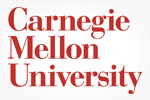Project Profile
Multidisciplinary Training Program in Computational Analysis of Social and Organizational Systems (CASOS)
Carnegie Mellon University
Abstract
This Integrative Graduate Education and Research Training (IGERT) award supports the establishment of a multidisciplinary graduate training program of education and research in Computational Analysis of Social and Organizational Systems (CASOS). In the past decade the computational social sciences (e.g., computational organization theory) and the social computer sciences (e… more »
This Integrative Graduate Education and Research Training (IGERT) award supports the establishment of a multidisciplinary graduate training program of education and research in Computational Analysis of Social and Organizational Systems (CASOS). In the past decade the computational social sciences (e.g., computational organization theory) and the social computer sciences (e.g., multi-agent systems) have emerged. This has resulted in a unified perspective on groups, organizations, institutions and societies as intelligent adaptive agents composed of networks of socially-embedded, intelligent and adaptive agents that can be reasoned about, and supported by, computationally and socially sophisticated models and agents.
The CASOS program will prepare students for this field by teaching them how to use computers to understand the complexities of human behavior and how to use knowledge of humans as social actors to improve computational agents. Program features include: integrated social and computer science curriculum; studio courses emphasizing real-world corporate concerns, model design, implementation and validation; mentoring program; research practicum, proposal competition; distance learning; and integrated summer workshop and conference. Classes and research will take place in the classroom/office of the future — a distributed intelligent space where people have ubiquitous access to and can provide/receive information wherever, whenever and to/from whomever they want in an unbounded network of agents (human, webbots, robots, corporations, etc.); thus, reducing classroom/research barriers, enabling real-time computational analysis, data collection, and model validation, and increasing interaction with faculty and students at other institutions.
IGERT is an NSF-wide program intended to facilitate the establishment of innovative, research-based graduate programs that will train a diverse group of scientists and engineers to be well-prepared to take advantage of a broad spectrum of career options. IGERT provides doctoral institutions with an opportunity to develop new, well-focussed multidisciplinary graduate programs that transcend organizational boundaries and unite faculty from several departments or institutions to establish a highly interactive, collaborative environment for both training and research. In this second year of the program, awards are being made to twenty-one institutions for programs that collectively span all areas of science and engineering supported by NSF. This specific award is supported by funds from the Directorates for Social, Behavioral, and Economic Sciences, for Computer and Information Science and Engineering, and for Education and Human Resources. « less
Contributions[?]
Project members' contributions to the library and showcase are listed here.






